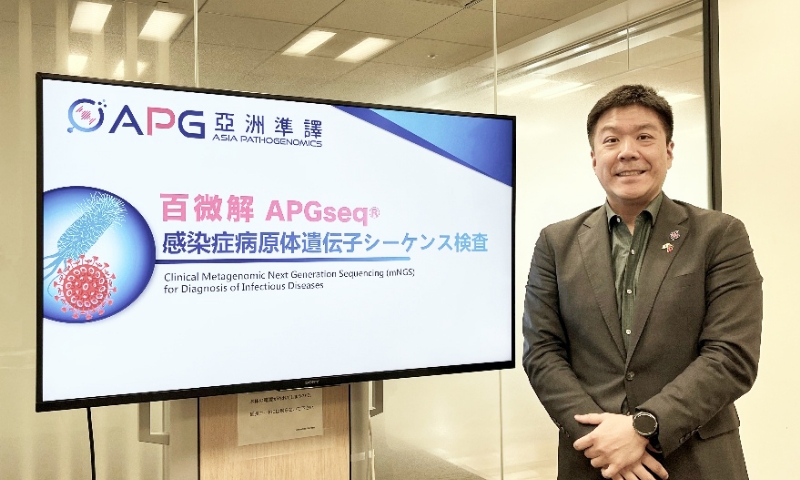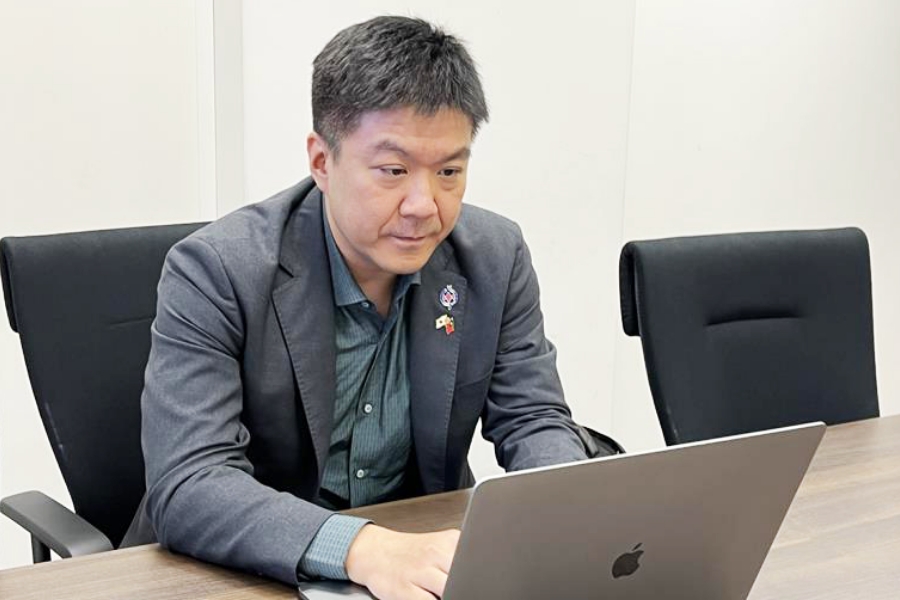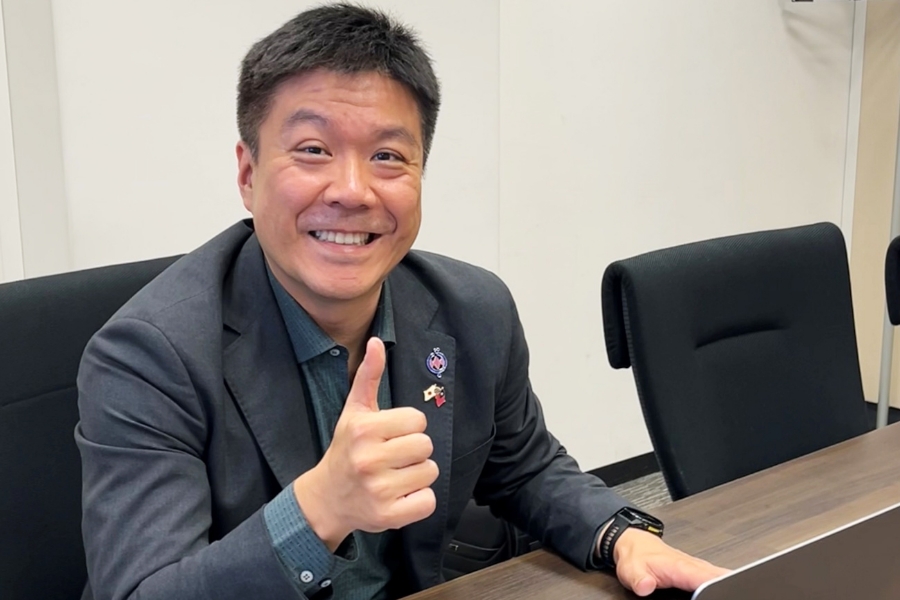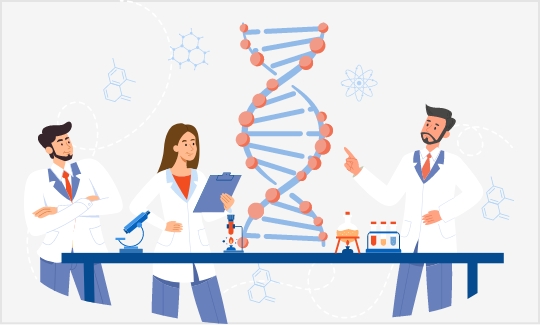
Asia Pathogenomics Japan Co., Ltd.
CEO, Roger Liu
We interviewed Roger Liu, CEO of APG Asia Pathogenomics Japan in person in Akasaka.
Infectious Pathogen Testing Based on Next-generation Whole Genome Sequencing Technology
QCould you explain your services in detail?
APG Asia Pathogenomics Japan (hereinafter, APG) provides services for decoding DNA genome sequences using next-generation sequencing to conduct infectious disease testing. Traditionally, infectious disease testing is conducted based on hypotheses. However, this method does not allow for the immediate identification of the cause of the infectious disease, and treatment cannot commence without identifying the cause. Our technology allows us to perform genomic analysis on samples collected by doctors and immediately identify pathogens by cross-referencing our database. We are capable of identifying over 27,000 pathogens within 24 hours.
This technology is beneficial not only to patients but also to the government. If we can quickly identify infections using this technology, we can reduce the length of hospital stays and also improve the 90-day survival rate. A shorter hospital stay means that it is possible to reduce the government’s healthcare budget.
QWhen did you expand into Tokyo?
With a subsidy from the Tokyo Metropolitan Government, we established our Japan branch in Tokyo in May 2025. Participation in the 2025 SusHi Tech Challenge has also increased our recognition in Japan. We were able to receive advice related to the medical industry from consultants and institutions like Nagasaki University and Kyushu University and collaborate with the Ministry of Health, Labour and Welfare. We also invited key opinion leaders (KOL) from Taiwan to exchange opinions with Japanese doctors on how our technology can be used in clinical settings.
QCould you describe your career path so far?
 I graduated from medical university majoring in nutrition. The sequencing technology was developed in 2007, and I have been involved in this field since 2008.
I graduated from medical university majoring in nutrition. The sequencing technology was developed in 2007, and I have been involved in this field since 2008.
We have completed 20 clinical trials in Taiwan and received government approval. Additionally, APG’s Taiwan headquarters plans to go public in the fourth quarter of next year. Currently, 87 percent of medical institutions in Taiwan utilize our testing services.
APG is my second startup. I founded my first startup in 2012, providing services to numerous life science research institutions in Taiwan. I noticed that the cost of next-generation sequencing is decreasing, and that the literature on microbiological research is rapidly increasing. Our technology is specialized to focus on the detection of infectious disease pathogens, which are deemed critically important in clinical settings following cancer and prenatal diagnoses. In 2020, when technology had matured and costs were decreasing, we established APG in Taiwan.
QWhy did you consider expanding into Japan?
To be honest, we had not really considered entering the Japanese market. This was because we had been quite successful in Taiwan. The impetus came from an inquiry by a certain company, questioning whether next-generation sequencing technology for pathogens had taken root in Japan. We saw potential for its application in Japanese clinical settings and therefore decided to enter the market. Japan became the first country where we established a local subsidiary. We believe that if we can succeed in Japan, we can succeed anywhere in the world.
QWhat were the challenges you faced when expanding your business into Japan?
The challenges in establishing a local entity in Japan include significant differences in medical regulatory systems between Taiwan and Japan and the lengthy process to obtain insurance reimbursement. Although the healthcare systems in Taiwan and Japan are quite similar, approximately 60% of Taiwan’s population enrolls in private medical care insurance, whereas Japan has
a National Health Insurance system for residents. Therefore, we have requested a consulting firm to prepare a pathway for regulatory compliance in preparation for discussions with the Ministry of Health, Labour and Welfare.
QWhat kind of companies would you like to match with?
We are seeking to be matched with a large-scale testing center. This is because hospitals in Japan usually outsource testing to testing centers, unlike in Taiwan.
Additionally, we would like to meet with more experts who are knowledgeable about medical regulations. We are aiming to obtain reimbursement approval and are applying for our technology to be software as a medical device (SaMD). To achieve this, it is first necessary to clearly identify the applicable medical conditions, and for this we would like to seek the opinions of experts.
QHow do you plan to expand your business in the future?
 Fortunately, our company was able to receive a subsidy from the Tokyo Metropolitan Government and establish a local subsidiary in Japan. We are currently planning to hire three employees and are also preparing for several clinical trials in order to obtain approval.
Fortunately, our company was able to receive a subsidy from the Tokyo Metropolitan Government and establish a local subsidiary in Japan. We are currently planning to hire three employees and are also preparing for several clinical trials in order to obtain approval.
Case Studies

Overseas startups expanding into Tokyo
×
Tokyo companies
3-8-3 Marunouchi, Chiyoda-ku, Tokyo
Tokyo Innovation Base 1F
Square 1



